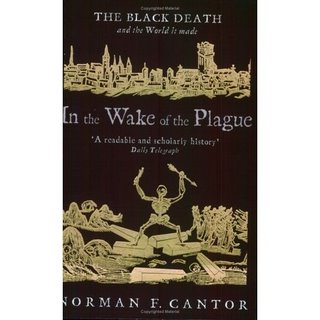
This guy was writing in response to a controversy I didn’t know existed. Apparently there are various scholars taking the position that Rome didn’t really "fall" due to "barbarian attacks." These folks wouldn’t claim that the process was entirely peaceful, but they assert that the Roman world gradually reached accommodations with Germanic folks (please don’t call them barbarians or put down their culture as compared to Rome’s) and transitioned into a different, less centralized but equally satisfactory lifestyle.
And here I had envisioned these wild Gothic types looting and pillaging and whatever (just like the cover artwork on the book), I didn’t even know an alternate view was out there.
Anyway, this author disagrees with this school of thought. He feels that the process was violent, not consensual, and ended up with a huge degradation of civilization, if more pronounced in some areas than others. All this is quite interesting, and I find his position compelling. The guy has studied lots of potsherds over the years, studied the use of tile roofs and coins, and evidence (such as it is) of the spread of writing. All this gives a pretty good picture of the extent to which some version of prosperity spread far beyond upper crust Roman society and down to the average citizen. Trade clearly was taking place all over the Roman world. After the barbarians took over, this type of evidence suggests rapid, swift disintegration (especially in the western parts of the empire).
The part about Britain was particularly interesting – because Britain was on the very edge of Roman civilization. Apparently this makes it easier to identify the influence of Roman civilization, and in turn the post-barbarian drop-off is incredibly pronounced. The author describes it as going back to the Iron Age, with a recovery period mentioned in centuries.
Something else interesting (at least to me) is that I have had some of these dates mixed up in my head. I tend to think of Rome as falling shortly after the time of Christ, when the traditional measuring date for the fall is the taking of Rome by Odoacer in 476. Roman ways no doubt survived long after that. When you think of Clovis in 511, the rapid progress of Islam via battle in the vacuum during this time, Battle of Tours in 732, Charlemagne in 800 – it really was a short leap in time between some of these developments, rather than century after century of “dark ages.”
Short, well-written, worth reading.


